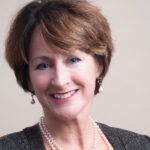Thoughts for Today, Dec. 20, 2016
- Saints beget saints.
While I was reading the saint of the day this morning, I was struck by the way saints “beget” saints. Today’s saint, St. Dominic of Silos, a humble monk in Spain, never met “the” St. Dominic, the founder of the Dominicans. But St. Dominic of Silos did in fact “meet” St. Dominic’s mother—and the rest is history. According to Fr. Don Miller, OFM, “About 100 years after Dominic [of Silos]’s death, a young woman made a pilgrimage to his tomb. There Dominic of Silos appeared to her and assured her that she would bear another son. The woman was Joan of Aza, and the son she bore grew up to be the ‘other’ Dominic—the one who founded the Dominicans.” The Dominicans, known as the order of preachers, countered powerful heresies in the past and continue the work of conversion today—in preaching, spiritual direction, theological works, and their witness of life.God has a delightful way of working through his followers—including the most ordinary among us—if we’re willing to pay attention and simply “do whatever he tells you.” (John 2:5) Be attuned to the people you meet and the conversations you have—perhaps the Lord will work through you today to offer the gesture of love or nudge to repentance that someone needs. - And the world certainly needs more saints.
The latest terrorist attack, in which evildoers used a truck to mow down Christmas revelers at an outdoor celebration in Berlin, reminds us that anything can be a weapon for the person bent on evil. For “evils come from within.” (Mark 7:21). The Church, however, is a powerful instrument for good, in spiritual and humanitarian terms. And yet, as the new chairman of Catholic Relief Services, Maronite Bishop Gregory Mansour said recently in an interview with the Catholic News Service, “You don’t hear about all the humanitarian work that is being done, Christians and Muslims alike in tandem working together.” Bishop Mansour pastors the Maronite Catholic Church in the U.S, a branch of Catholicism that traces its roots to Syria—the current site of widespread persecution and violence. “We deal in a very tough neighborhood,” Bishop Mansour notes. And that’s precisely where the Church is most needed. - Discernment. The Pope emphasizes it, but what is it?
We’re each called to be a disciple of Jesus. But we live in the messy here and now of daily life, which requires us to make concrete decisions about what to believe and how to act. While the Church’s teachings are clear and provide parameters for moral decision-making, many other life decisions come down to “judgment calls,” where there’s no obvious right or wrong direction. We can only find the right path by discerning God’s will for our lives. But how? As Pope Francis says, ‘How can I make sure that voice I hear is the voice of Jesus…that what I feel I have to do is done by the Holy Spirit?” His answer: prayer. “Without prayer, there is no place for the Spirit. Ask God to send us this gift: ‘Lord, give us the Holy Spirit so that we may discern at all times what we have to do’… We must discern, and to discern must pray, we must ask this grace.” (And if you’re looking for further insights on discernment, I encourage you to read this thoughtful piece by a young woman named Madeline Running of the University of Notre Dame.)
And so, let’s pray, discern, and be open to being channels of God’s grace to all we meet today!
Mary


